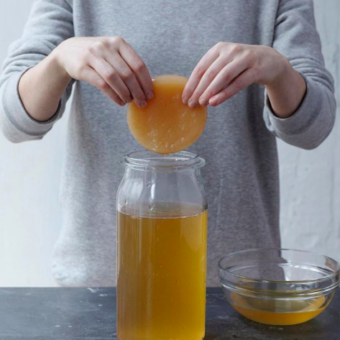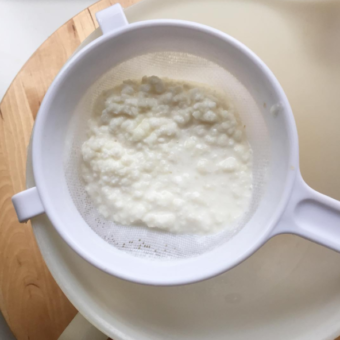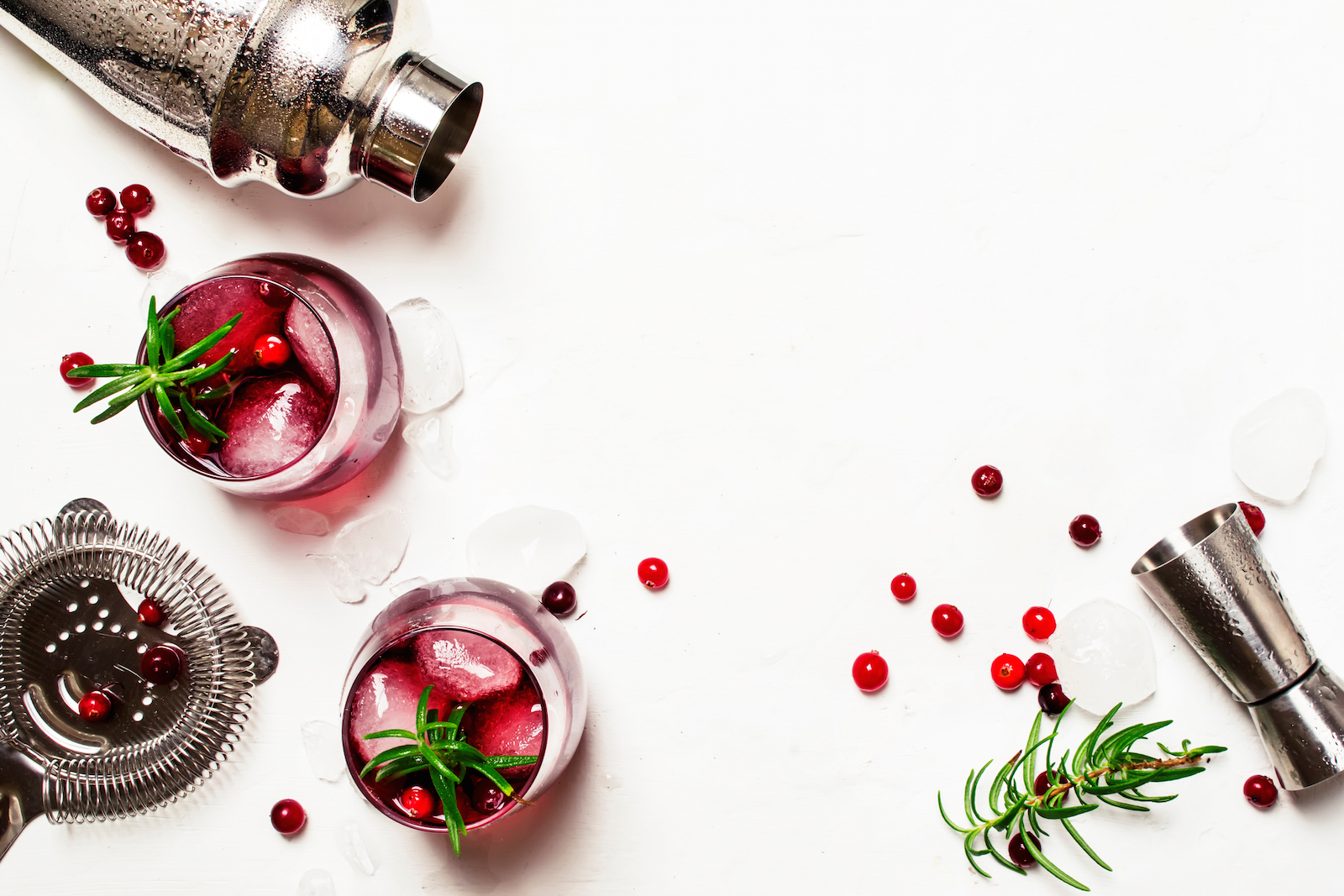Fermented Beverage Face-Off: Kombucha vs. Kefir
Home » Drink Up » Fermented Beverage Face-Off: Kombucha vs. Kefir
Okay, so you keep hearing gut health is the golden ticket that gets you access to every health benefit imaginable: No more bloating! Great skin! Disease prevention! But sauerkraut and kimchi just plain-old gross you out. May we suggest a fermented beverage?
Like fermented foods, some drinks provide probiotics, a source of “friendly” bacteria that can help improve how the intestinal tract functions.
Kombucha and kefir are the most popular, and both may help supercharge your digestion (and overall health).
So, how do you decide which to sip (especially considering they both have strange names that start with a k and you might get confused)? We pitted the probiotic drinks against each other in a battle of the bacteria.
Fermented Beverage Face-Off

Kombucha
What It Is: Kombucha is a fermented tea. It’s made by brewing tea, adding sugar, and then adding a SCOBY (Symbiotic Culture of Bacteria and Yeast) which starts the fermentation process by feeding on the sugar.
Pros and Cons: Kombucha is rich in beneficial probiotics, provides some antioxidants, and is very low in calories. It’s a dairy-free option so is better for vegans and the lactose-intolerant. The fermentation process does produce very small amounts of alcohol (a bottled kombucha usually contains around 1 percent), which is pretty negligible but important to note for anyone specifically avoiding alcohol. Like many nutrients, the probiotics in kombucha cannot survive pasteurization, so you’ve got to drink it unpasteurized.
Taste: It tastes like a slightly fizzy, sweet-and-sour tea, almost like a mild sour beer. It’s easy to drink and a lot of people prefer it over kefir’s creamy texture.
Making or Buying: Making it at home is much more intense than making kefir. You have to get a SCOBY and considering it looks like a big, floppy jellyfish, handling it can be a little off-putting. You also have to be very careful about keeping everything sterile to avoid contamination. There are now many, many great brands available at health food (and most grocery) stores. If you buy it, just watch for added sugar and make sure it’s not pasteurized, since that would completely defeat the purpose.
Kefir
What It Is: Kefir is a tangy, yogurt-like drink that’s teeming with good bacteria and yeast. It’s made by adding probiotics to milk.
Pros and Cons: It’s rich in probiotics and other nutrients. Although it has more calories than kombucha, a cup of lowfat plain kefir also provides a whopping 11 grams of protein, plus B vitamins and tryptophan, which helps fight stress. Research has shown that kefir also contains kefiran, a polysaccharide linked to lowering blood pressure and cholesterol. Here’s a surprise: If you’re lactose intolerant, you may still be able to tolerate and digest kefir since the fermentation process removes most of the lactose from the milk (you’d just need to do a tummy-rumbling test to find out!). It’s also possible to make non-dairy water kefir, but it’s much less common.
Taste: Creamy and tart, like drinkable yogurt.
Making or Buying: Making kefir is simpler than making kombucha. You take milk from a cow, sheep, or goat and add kefir culture—called “grain”—to a glass jar and let it hang out on the counter for 24 hours. Then you strain it, and it’s good to go. You can also buy it at the supermarket or a health food store, although it’s not as ubiquitous as kombucha. To avoid added sugar, buy plain rather than flavored and jazz it up at home by adding a small spoonful of honey, cocoa powder, vanilla extract, or cinnamon. You can also use it instead of your usual liquid when blending a smoothie.
The Fermented Beverage Champ
Overall, kefir is much more nutrient-dense and easier to make—but kombucha is a great option if you’re vegan or simply prefer the taste. Sip on either one to reap the benefits of fabulous fermentation.
The Nutritious Life Editors are a team of healthy lifestyle enthusiasts who not only subscribe to — and live! — the 8 Pillars of a Nutritious Life, but also have access to some of the savviest thought leaders in the health and wellness space — including our founder and resident dietitian, Keri Glassman. From the hottest trends in wellness to the latest medical science, we stay on top of it all in order to deliver the info YOU need to live your most nutritious life.
RECENT ARTICLES

Want a sneak peek inside the program?
Get FREE access to some of the core training materials that make up our signature program – Become a Nutrition Coach.
Get Access"*" indicates required fields
 Drink Up
Drink Up













































































































































































































































































































































































































































































































































































































































































































































































































































































































































































































































































































































































































































































































































































































































